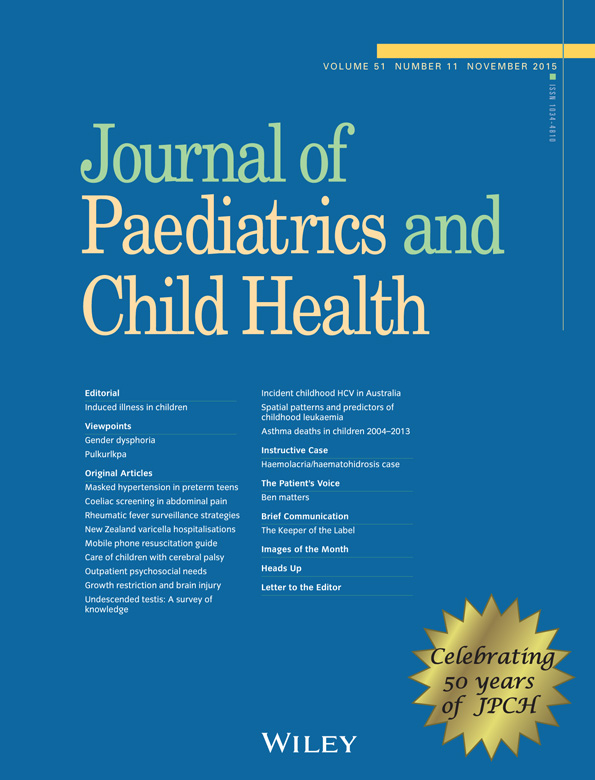Psychosocial needs of parents and children accessing hospital outpatient paediatric services in New Zealand
Abstract
Aims
The aim of this study was to examine the psychological and psychosocial service needs of parents and children in a New Zealand hospital paediatric outpatient clinic.
Method
Parents (n = 152), children and adolescents aged 0–16 years with a range of illness types and severities completed self-reports of depression, anxiety, stress and quality of life, and rated their child's emotional, behavioural and social problems. Paediatricians rated children's health, medical adherence and the families' need for psychosocial support.
Results
One hundred fifty-two parents completed the questionnaire. Parents' stress levels were significantly higher than those in a normative population. Children's levels of emotional, behavioural and social problems were significantly elevated. Paediatricians perceived that a large proportion of families could benefit from psychosocial intervention, and the majority of families were interested in paediatric psychological services.
Conclusions
Parents and children coping with mild or short-term childhood illnesses may experience significantly elevated levels of psychological distress and dysfunction, as do those with chronic or life-threatening illnesses. While families report high levels of interest in receiving paediatric psychology services, the majority has not received psychological support.




